Equity & Inclusion
READ THE STORIES: Expanding Equitable Access to Services | Advancing Gender Equality and the Empowerment of Women and Girls
At Abt, we recognize that the health and well-being of individuals, families, and communities are shaped by a multitude of structural and systemic factors and historical inequities—this is why we aim to put equity at the center of our work around the world.
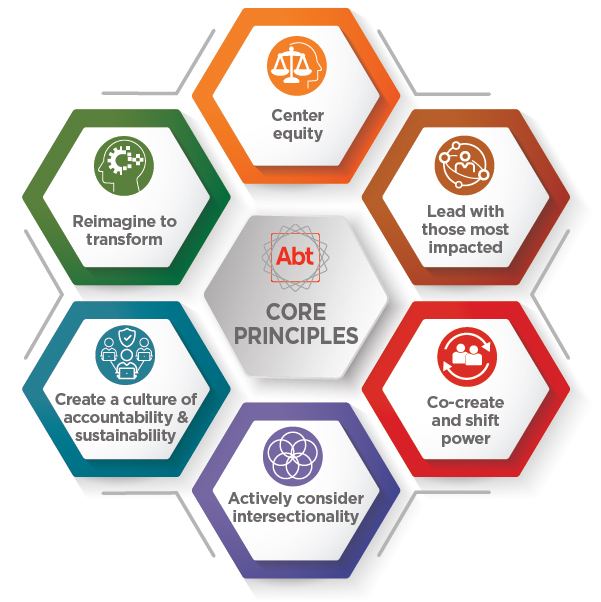
We are focused on integrating equity into our projects in technical assistance, implementation, and research, monitoring, and evaluation. We also strive to apply an intersectional lens. People’s intersecting identities—such as their race, ethnicity, gender, sexual orientation, socioeconomic status, ability status, and migration background—greatly affect their lived experiences and the challenges they face to achieving full social, economic, and political participation and well-being.
Our strategies, projects, and programs aim to work closely with the people most impacted by the issues we analyze and help them address—partnering with them as leaders and decision makers. Abt’s ultimate vision for our work on equity is to shift power dynamics, reduce exclusion and discrimination, and ensure that the autonomy, voice, and resources of people who have been marginalized or excluded lead the work.
Equity is a learning journey. We are challenging our clients, partners, and peers to embark on and sustain this journey with us.
Expanding Equitable Access to Services
Structural and systemic inequities hinder the ability of individuals, families, and communities to access and fully benefit from essential services like health care. This undermines their health status and well-being. Analyzing the sources of these inequities is a critical step in addressing them. But analysis by itself is not enough: Equity work requires planning, implementing, and monitoring programs in a way that provides tailored support so that all people can achieve their best life outcomes.
Understanding Health Equity and Racism in the United States
Abt works to advance health equity in countries around the world, including the United States, where there is a large and growing body of evidence that racism is built into medicine, healthcare, and the structures that support these sectors.

In 2021, the U.S. Preventive Services Task Force (USPSTF), Kaiser Permanente Center for Health Research, and Abt presented the findings of a study in the Journal of the American Medical Association, with the objectives of articulating the definitional and conceptual issues around racism and health inequity and describing how racism and health inequities are currently addressed in preventive health. Key findings are summarized in the excerpt below:
“Race as a social category does not have biological underpinnings but has biological consequences through racism. Racism is complex and pervasive, operates at multiple interrelated levels, and exerts negative effects on other social determinants and health and well-being through multiple pathways. In its reports, the USPSTF has addressed racial and ethnic disparities, but not racism explicitly. The systematic reviews to support the USPSTF include interventions that may mitigate health disparities through cultural tailoring of behavioral interventions, but reviews have not explicitly addressed other commonly studied interventions to increase the uptake of preventive services or foster the implementation of preventive services. Many organizations have issued recent statements and commitments around racism in health care, but few have provided substantive guidance on operational steps to address the effects of racism. Where guidance is unavailable regarding the proposed actions, it is principally because work to achieve them is in very early stages.”
PROJECT: Scientific Resource Center to Support the United States Preventive Services Task Force (USPSTF)
CLIENT: Agency for Healthcare Research and Quality (AHRQ)
![]()
![]()
Increasing Access to Healthcare for Migrants in Latin America and the Caribbean
The Latin America and Caribbean (LAC) region has experienced unprecedented migration flows over the last decade. Migrants fleeing hardship in Venezuela, Haiti, El Salvador, Guatemala, and Honduras need access to essential services like health care when in transit as well as in their host communities. Many also have specific needs, such as women migrants, who are often exposed to additional risks of violence and exploitation. While emergency humanitarian assistance can help, the best way for overwhelmed host countries to ensure that these new members of society have sustained access to essential health services is to have a long-term strategy—one that integrates migrants into existing health systems.
Leading the USAID-funded Local Health System Sustainability Project (LHSS), Abt and partners are supporting national governments in developing and implementing system-strengthening strategies to respond to migration in Colombia, Peru, and elsewhere in the LAC region. These systems-strengthening approaches not only recognize health care as a human right, but also, evidence suggests, result in more cost-effective care than emergency health services in the long run.
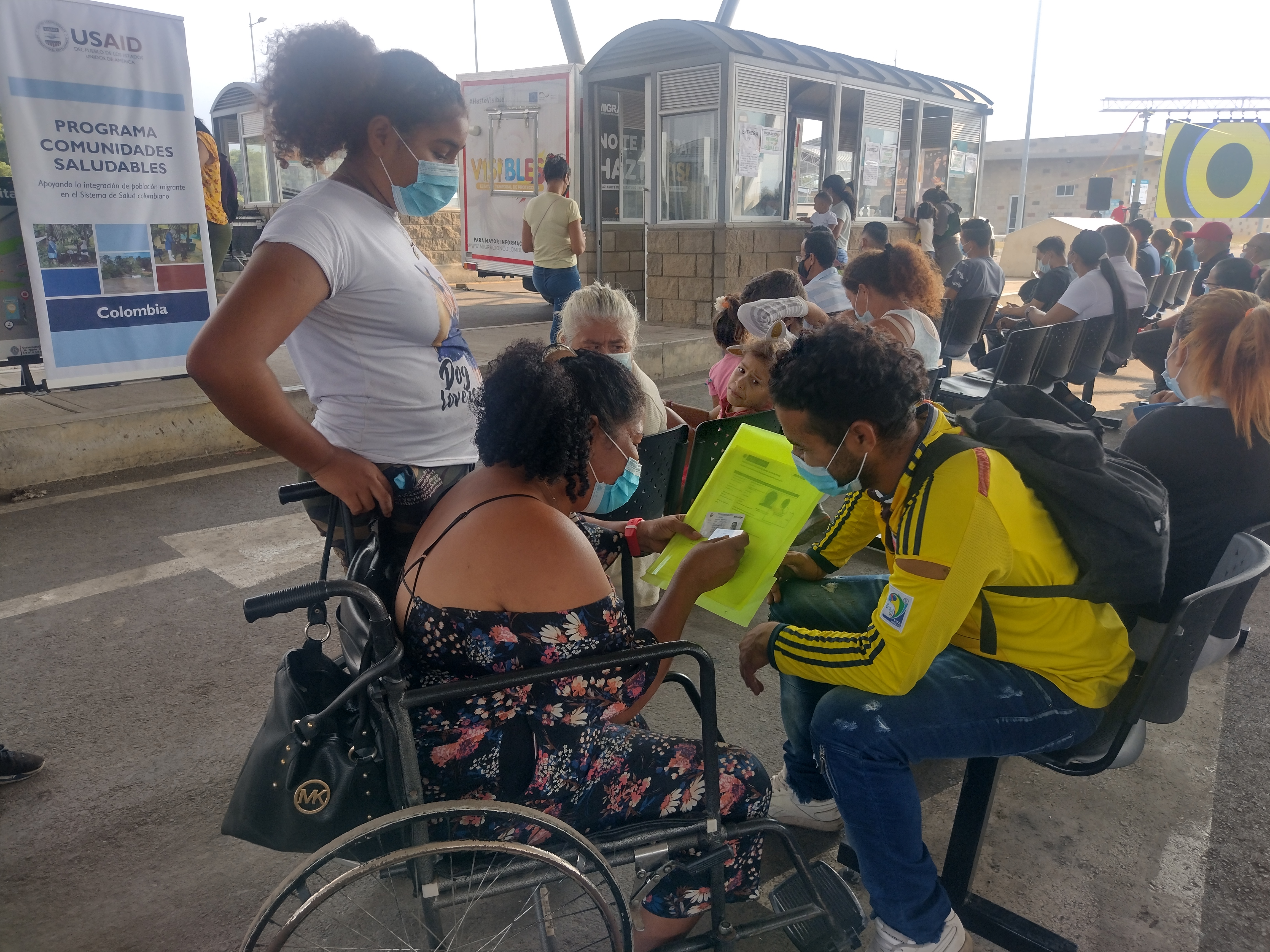
Colombia currently hosts approximately 1.8 million Venezuelans who have left their country due to the socioeconomic and political crisis. Although many of these migrants are eligible to receive health care through Colombia’s national health insurance system, they face barriers to access, including lack of information about their rights and how to enroll in the system. Abt is supporting the Colombian Ministry of Health’s efforts to enroll Venezuelan migrants in Colombia’s public health insurance. The LHSS team analyzed key barriers to migrant enrollment and strengthened municipal health authorities’ capacities to develop effective strategies to enroll migrants. For example, with LHSS support, municipalities are conducting enrollment days where migrants receive help filling out enrollment forms. To promote awareness and trust, LHSS has mobilized community-based organizations to spread the word about the enrollment campaigns and provide information on the enrollment process. Through LHSS support and more than 200 enrollment events, 82,000 migrants were able to enroll in the national health insurance system as of May 25, 2022.
PROJECT: Local Health System Sustainability Project
CLIENT: U.S. Agency for International Development (USAID)
![]()
![]()
![]()

Expanding Preventive Services to Improve Child and Family Well-being
After criminal justice, child welfare may be the most inequitable system in the U.S. Black children, for example, account for 15 percent of the child population but 25 percent of children in foster care, a 64 percent discrepancy. A large part of this is because Black families lack access to preventive services like prenatal care, home visiting, family resource centers, and supportive housing and experience higher levels of targeted surveillance.
Solutions require a shift away from a child welfare system focused on reacting to mistreatment and removing children from their homes. Instead, the system must focus on prevention, including advocating for or supporting community conditions that can promote well-being, and providing services so families don’t enter the system in the first place.
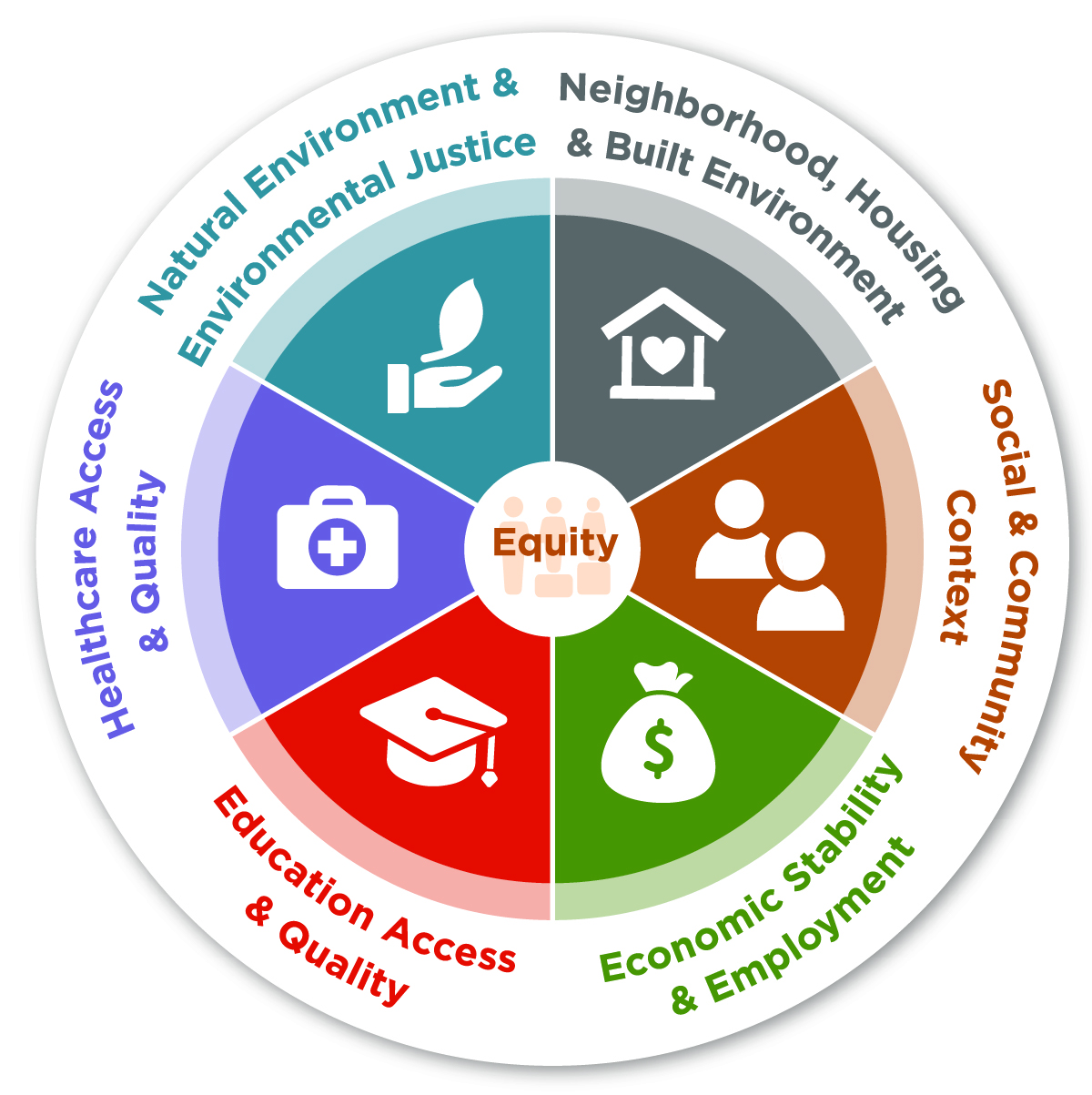
The change in approach, especially for young children, requires addressing the links among racial inequity, education, poverty, health and housing disparities, and involvement with the child welfare system—and recognizing their lasting, harmful effects on children’s lives.
Casey Family Programs, a pioneer in this area, engaged Abt to support its Thriving Families Safer Children initiative, which promotes the well-being of children, families, and communities. Abt provided strategic advisory services and developed innovative digital tools and engagement to inform a road map for creating a child and family well-being system focused on the needs of young children, prenatal to age three.
Abt’s Accelerated Automated Search used artificial intelligence for a literature search to comb through 30,000 peer-reviewed papers to determine what we know about what is needed to build a transformative, well-coordinated system that ensures access to meaningful preventive services. The answer: precious little.
So, in New Hampshire, Abt adapted a mapping methodology used to calculate access to healthcare to instead calculate access to childcare services. It turned out they were located conveniently for employees but not families, creating childcare deserts. The mapping methods can scale nationally to improve access to preventive services.
The search is on for human-centered solutions focused on children and their families, from mobile services to provider incentives to move closer to clients. Local schools during downtimes could provide services in underserved communities. The transformation is critical—and one that can change the trajectory of families for generations.
PROJECT: Building a 21st Century Road Map to Child Welfare Transformation
CLIENT: Casey Family Programs
![]()
![]()
![]()
Advancing Gender Equality and the Empowerment of Women and Girls
As workers, farmers, business owners, community leaders, policymakers, caregivers, and consumers, women are pivotal actors in communities and economies around the world. Their empowerment is key to sustainable economic growth and more equitable progress. Yet there are many challenges to women’s social, economic, and political participation. Women face wage gaps, difficulty in accessing finance, discriminatory laws and policies, and gender or cultural norms that limit educational or career opportunities. Additional obstacles include household responsibilities and unpaid work, inadequate care infrastructure, gender-based violence (GBV), lack of sexual and reproductive health services and rights, and disproportionate vulnerability to shocks. Certain groups of women are affected disproportionately by these inequalities due to the intersections of gender with ethnicity, race, class, ability, and other identity markers. Abt’s programs strive to work across challenges to gender equality while taking into account these intersections.
Supporting Private Sector Coalitions to Advance Workplace Gender Equality
In the workplace, women face significant barriers stemming from implicit and explicit biases in the labor market—including in recruitment, promotion, and compensation. The COVID-19 pandemic compounded many of these challenges, including by disproportionately increasing women’s household and caregiving responsibilities compared with that of male colleagues. The pandemic-related economic slowdown also triggered gender equality to fall among governments’ and employers’ lists of priorities.
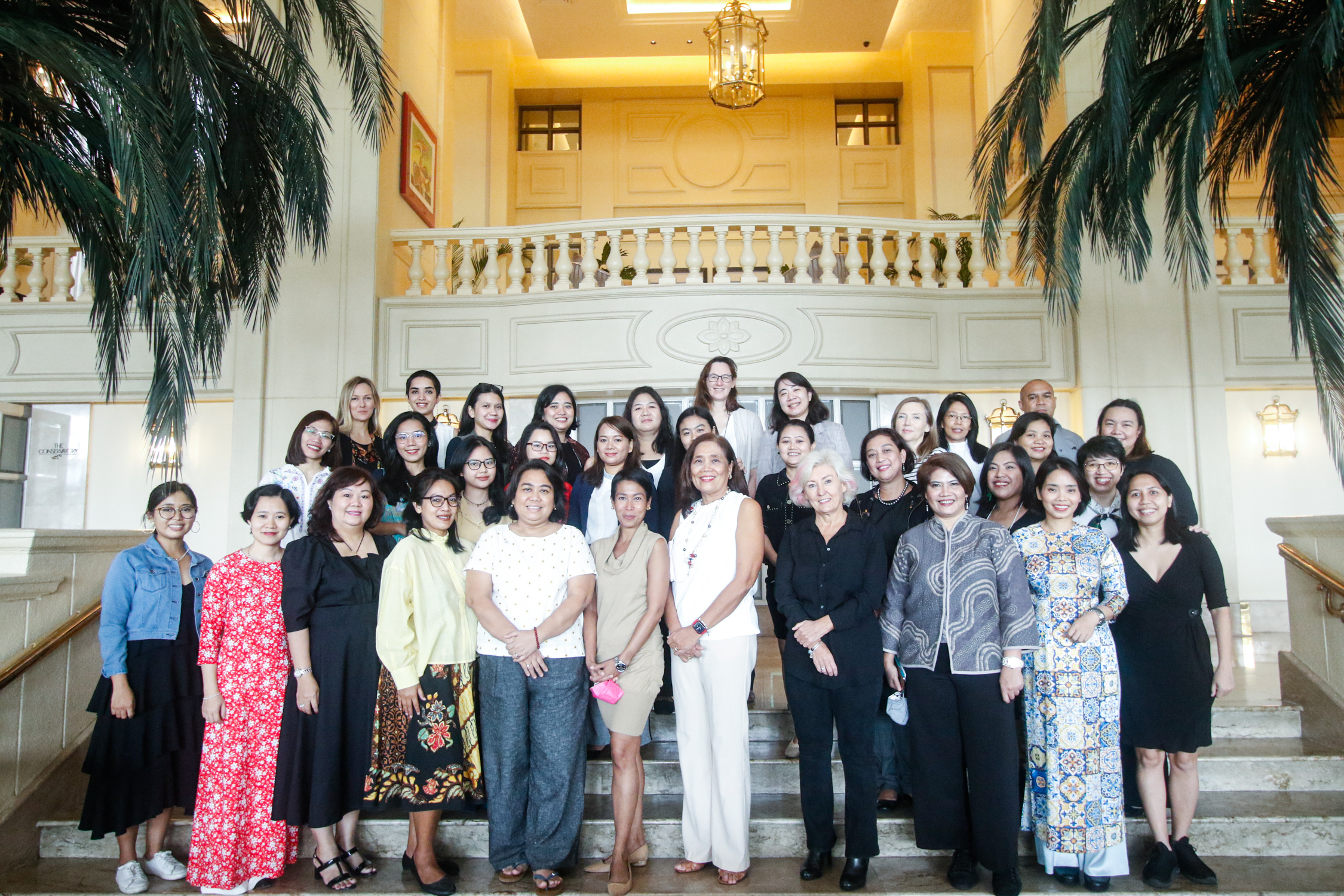
Leading businesses have significant power to effect change and influence society toward gender equality. And there are significant business benefits to doing so, such as increased staff motivation, better talent management, higher productivity and performance, and improved reputation.
The Abt Australia-led Investing in Women project works on women’s economic empowerment in Southeast Asia by improving gender equality in the workplace, increasing access to finance for women-owned or -led small and medium enterprises, and influencing harmful social gender norms.
To advance workplace gender equality, we take a locally-led and responsive approach to develop business coalitions (BCs) that work with influential businesses to shift workplace cultures, practices, and policy barriers in the region.
The coalitions have taken different forms in different countries, depending on what local businesses and other interested stakeholders thought would be most effective given local needs and contexts. For example, in Vietnam we consulted with local partners and together concluded the best approach would be to establish a BC as a social enterprise. In the Philippines, there was already an NGO focused on women’s leadership in business, so we leveraged the idea of a BC to help strengthen the NGO’s work in this space.
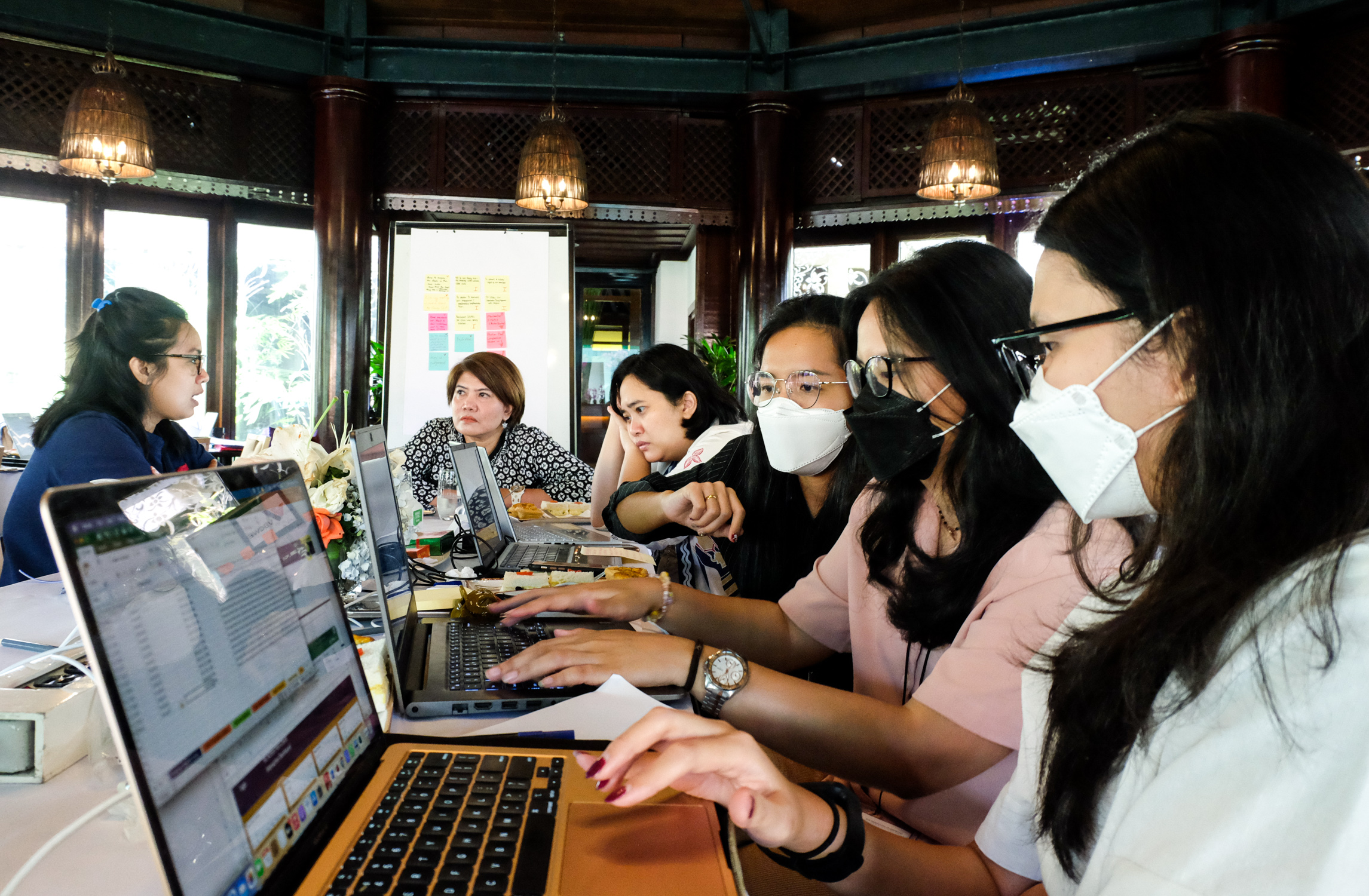
Each BC offers several key services to its business members and other firms: workplace gender equality assessments, employee perception surveys, training, and policy consulting. Investing in Women helps the BCs develop and adapt recognized tools and services to the needs of local businesses. For example, Investing in Women worked with the BCs to adapt a toolkit developed by Australia’s Workplace Gender Equality Agency to better suit the Southeast Asian market. This has become the “Gender Equality Assessment, Results, and Strategies” (GEARS) and is delivered by all the BCs to help companies understand where they should take action for better outcomes on workplace gender equality.
As a result of its locally led approach, Investing in Women has helped the private sector in Southeast Asia build four thriving entities. Collectively, the BCs now have 105 member companies with an employee base of over 900,000 in the four countries. BC membership requires companies commit to and take action to advance gender equality in the workplace. And the BCs continue to grow, attracting new members and selling workplace gender equality services to non-member companies as well.
PROJECT: Investing in Women
CLIENT: Australia Department of Foreign Affairs and Trade (DFAT)
![]()
![]()
![]()
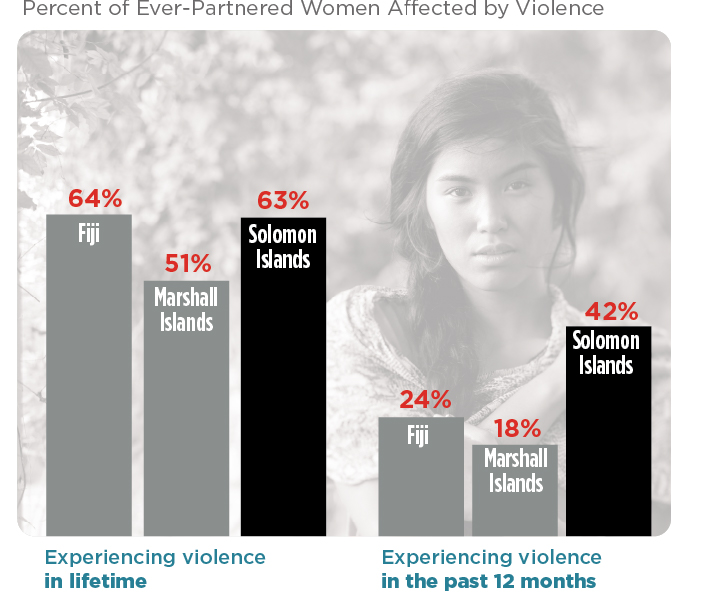
Quantifying the Economic Impact of Gender-Based Violence
Globally, one in three women experience gender-based violence (GBV) in their lifetime. This can significantly hinder their full social, economic, and political participation. One in four have experienced violence specifically at the hands of their intimate partners. The impact of intimate partner violence (IPV) ripples beyond the survivor. The severe emotional and financial costs range from medical expenses and loss of income to taxpayer costs for health, justice, and law enforcement services and the cost of intergenerational trauma from secondary exposure to IPV.
The Pacific Island region has some of the highest rates of IPV. In the Solomon Islands and Fiji, more than 60 percent of women who have ever been married or had long-term partners (“ever-partnered women”) report having experienced physical or sexual partner violence, while in the Republic of Marshall Islands more than 50 percent report having done so.
Abt Australia partnered with UN Women to conduct a study analyzing the cost of IPV to the economies of these three Pacific Island countries. This was the first GBV costing study that has been linked to their budget processes. We then worked with government ministries, non-governmental organizations, and others to apply the study’s insights to their work. The combination of rigorous research, capacity building, and technical assistance has helped ensure our research findings turn into meaningful action.
In addition to using a globally recognized methodology to calculate the cost of IPV to the economies of the Solomon Islands, Fiji, and the Republic of Marshall Islands, Abt developed a set of activities and corresponding costing model required to implement national legislation that aims to prevent and respond to IPV in education, health, sports, and governance. This was the first time such a package of activities and costing effort had been developed as a way of practically guiding the implementation of relevant national legislation in the three countries. Abt also developed and delivered a capacity-building package on gender-responsive budgeting, which is influencing budgetary processes in the three countries.
Overall, Abt trained more than 60 government and non-government participants from the Republic of Marshall Islands and Solomon Islands. And we engaged over 30 government and non-government organizations working in GBV and finance in all three countries to advocate for a greater budgetary allocation to preventing and responding to IPV. For many participants, this was the first time they’d had support for addressing GBV through budgetary processes.
PROJECT: Costing the impact of intimate partner violence and the resources required to address it: A multi-country research study in Fiji, Solomon Islands, and the Republic of the Marshall Islands
CLIENT: United Nations Entity for Gender Equality and the Empowerment of Women (UN Women)
![]()
![]()
![]()
Raising Awareness of Intimate Partner Violence in India
More than 640 million women globally have experienced violence at the hands of an intimate partner, and IPV cases increased dramatically during the COVID-19 pandemic, as victims were forced to stay at home with their partners during public health-mandated lockdowns. As in many other countries, the incidence of IPV in India was also exacerbated by COVID-19. The National Family Health Survey for 2015–2016 found that nearly 33 percent of married women aged 15 to 49 had experienced some form of spousal violence. Within two weeks of the 2020 COVID-19 lockdown, domestic violence complaints doubled.
Funded by the U.S. Agency for International Development (USAID), the Abt-led Sustaining Health Outcomes through the Private Sector Plus (SHOPS Plus) program launched a campaign that, for the first time in India, focused on the link between IPV and family planning (FP). The campaign helped increase knowledge of what constitutes IPV among women, helped women understand that denial of contraception is a form of violence, and expanded women’s access to FP information.
Highlighting the link between intimate partner violence and family planning through social media
The digital campaign partnered with social media influencers, health professionals, and private sector company Momspresso, a popular online platform with an audience of 30 million users and content in 10 languages. Television actor Divyanka Tripathi launched the campaign through an Instagram video reaching 16 million followers.
The campaign significantly increased awareness of IPV among those exposed to it. The percentage of women exposed to the campaign who consider denying use of contraception by a male partner as a form of domestic violence rose from 31 percent pre-campaign to 57 percent post campaign.
PROJECT: Sustaining Health Outcomes through the Private Sector (SHOPS) Plus
CLIENT: U.S. Agency for International Development (USAID)
![]()
![]()
![]()

MISSION IMPACT REPORT 2022: Explore
OUR WORK: Overview | Good Health | Economic Security | Effective Governance | Equity & Inclusion | Thriving Environment
OUR PEOPLE AND OPERATIONS: Overview | Employee Wellness | Financial Health | Ethics & Governance | Equity as Our Cornerstone | Environmental Responsibility
OUR COMMUNITIES: Overview
